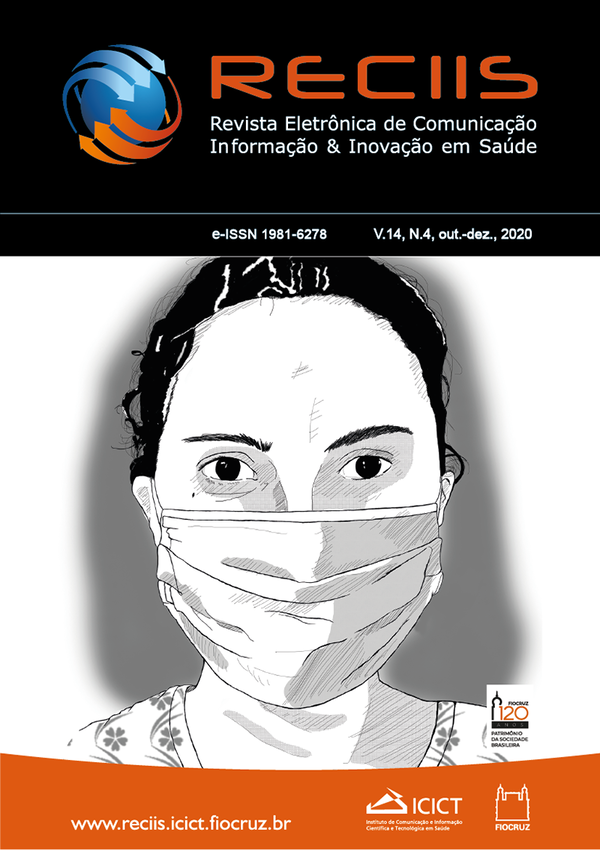Meia lua Falciforme: poetry, pain and battles
DOI:
https://doi.org/10.29397/reciis.v14i4.2131Keywords:
Sickle cell disease, Pain, Institucional racism, Health of the black population, Public health.Abstract
The documentary entitled Meia lua Falciforme portrays different aspects and daily battles in the life of patients and their families who live with sickle cell disease in the Brazilian scenario. Pain, racism and resistance are key issues discussed in the relevant short-length fim by Débora Evellyn Olimpo and Denise Kelm, which brings a perspective that extends beyond the physical illness, and presents in a dainty way some artistic productions of those living with the matter. The documentary mentions the great success regarding the resistance and the struggle for the recognition and regulation of the disease in Brazil, the conflcts routinely faced in search of access to health services, as well as the battle for a SUS that guarantees the principles of universality. and equity. This review brings some observations on the documentary and the matters that permeate the life of patients from the moment of diagnosis to the therapeutic itineraries and decisions.Downloads
Published
How to Cite
Issue
Section
License
Author’s rights: The author retains unrestricted rights over his work.
Rights to reuse: Reciis adopts the Creative Commons License, CC BY-NC non-commercial attribution according to the Policy on Open Access to Knowledge by Oswaldo Cruz Foundation. With this license, access, download, copy, print, share, reuse, and distribution of articles is allowed, provided that it is for non-commercial use and with source citation, granting proper authorship credits and reference to Reciis. In such cases, no permission is required from the authors or editors.
Rights of authors’s deposit / self-archiving: The authors are encouraged to deposit the published version, along with the link of their article in Reciis, in institutional repositories.












